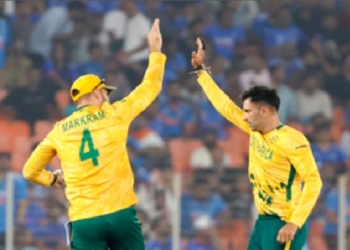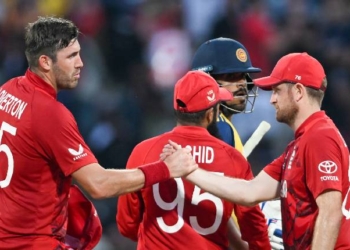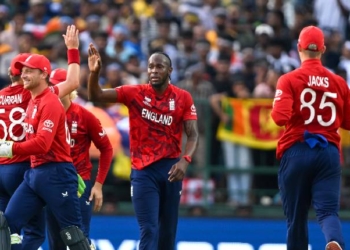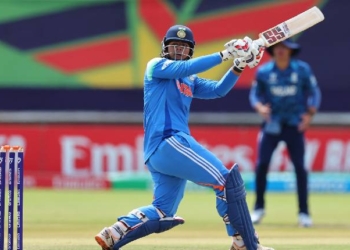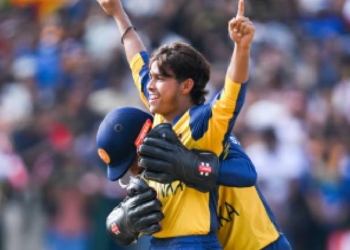New Delhi: As the eyes of the world are fixated on the Asia Cup action, the Board of Control for Cricket in India (BCCI) is getting ready to sell the bilateral media rights for international and domestic matches in India from September 2023 to March 2028 on August 31.
The BCCI has opted for an e-auction for the bilateral media rights, with a base price of INR 25 crores for India digital + rest of world TV & digital rights and INR 20 crores for India television rights, continuing the trend from IPL media rights auction. There’s a rider though: the cumulative value for a game must not be less than INR 60 crores, otherwise BCCI has the right to annul the auction.
It brings the combined rights value to INR 45 crores per game for a total of 88 matches, going down from the INR 60 crores per game paid by Disney Star in the previous cycle (where it won combined rights for INR 6138.1 crores for five years).
The bidding of these rights come after the BCCI fetched a whopping INR 48,390 crores from IPL rights sale in 2022. But circumstances are now different when it comes to Thursday’s bilateral media rights bid: the market environment has become challenging due to a slowdown in spending, especially on the advertising front, as well as the proliferation of T20 leagues causing a lack of interest in bilateral matches.
“If you look at the rights auction this time, the market environment is very different this time around as compared to the last time, when the IPL media rights auctions were happening. In the case of the BCCI media rights, the pricing has already been kept low and in terms of broader pricing, it is about 25% lower per match.”
“On the other hand, if you look at the IPL, it was 50% higher in terms of base price as compared to earlier editions. So, you may not get to see aggressive responses here as compared to the IPL,” said Karan Taurani, Senior VP-Research Media Analyst at Elara Capital, to IANS.
Taurani believes the competitiveness in the bilateral media rights will come down due to only three competitors in the bidding process. “You will not see such kind of hefty premiums for this because these broadcasters are going to be very conservative in terms of what they bid.”
“With the base price being kept lower, as well as the market environment kind of very challenging now and number of lesser players, you will not see a premium of more than 40% versus earlier cycle for this time for this kind of property.”
In the bilateral media rights auction, there are only three players – Sony Sports Network, Disney Star and Viacom18. Sony, by the virtue of its merger with Zee and to be completed by mid-November, will get to hold the India television rights of World Cup matches for the 2024-28 cycle.
Disney Star, which held BCCI bilateral media rights in last two cycles, holds the digital rights for the World Cup matches and IPL television rights. Viacom 18, meanwhile, has the IPL digital rights as well as WPL TV and digital rights.
Viacom18 looks to give a formidable challenge in the e-auction process, especially in the digital rights, due to its deep pockets, which Taurani agrees with. “If you look at their strategy, they want to aggressively be the market leader as far as OTT is concerned.
“It’s not that they have acquired IPL and then stop; even after this, they have launched multiple movies and originals (on JioCinema), and that process goes on. Even in this case, they would become one of the serious bidders and they will potentially bid aggressively for this kind of property.”
Though the BCCI has allowed a consortium bid for the first time, Taurani doesn’t see Sony and Zee entering auction together, with the merger still some time away due to various approvals still pending.
“I don’t see the merged company being formed before mid-November. But there could be some kind of strategy and synergy between the companies to bid together. But officially they cannot bid together because the merger process is two months away.”
With reports of de-merger and drop in revenue due to loss of IPL digital rights, Disney Star may not be aggressive in the bilateral media rights bid, feels Taurani. “As far as Star goes, they are having a hybrid kind of strategy. If you look at IPL, they are present on TV.”
“Plus, in coming World Cups (after 2023), they have sub-franchised the TV rights to Zee and have retained digital rights for that. So, they are following a strategy where they could keep it safe in their strategy and potentially try for getting both platforms.”
Taurani believes the most ideal scenario will be one bidder taking both TV and digital rights. “In this case, there could be a scenario where TV and digital rights are being definitely sold to two different platforms.”
“But I believe the most ideal scenario is that one platform takes the rights for both TV and digital. Its because once if the rights are sold separately to two different players, you see a lot of disruption in terms of advertiser interest and competition between advertisers.”
(IANS)




